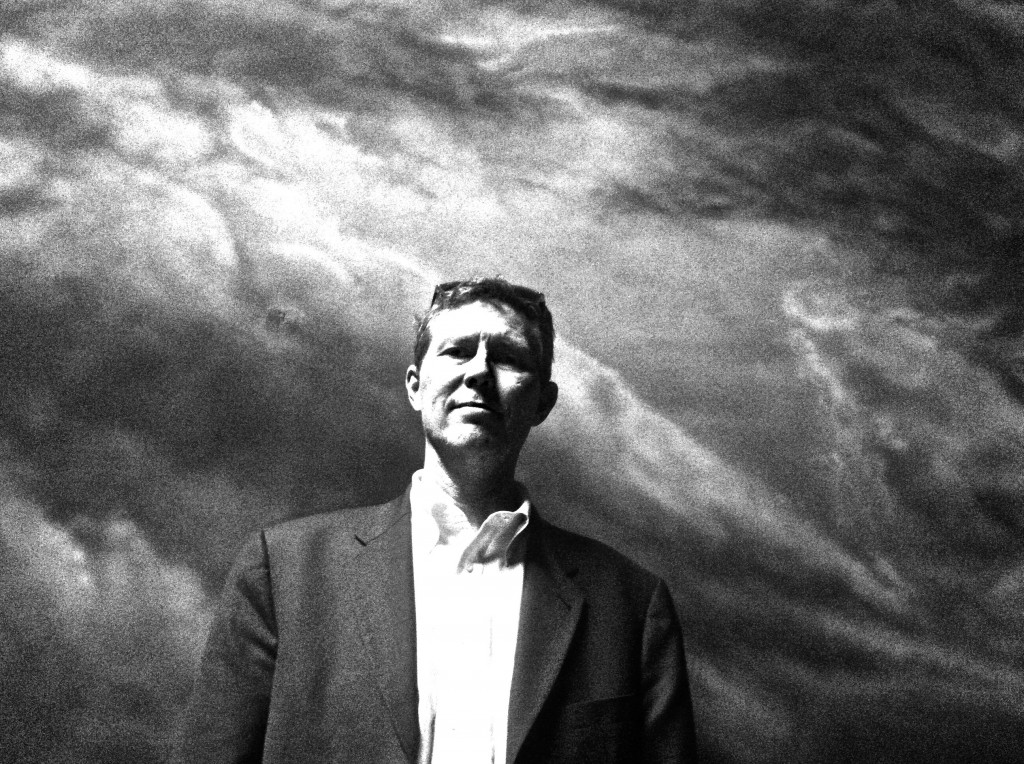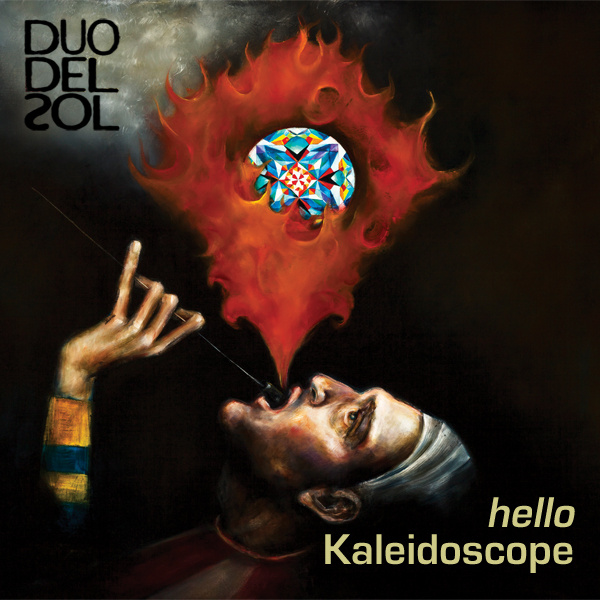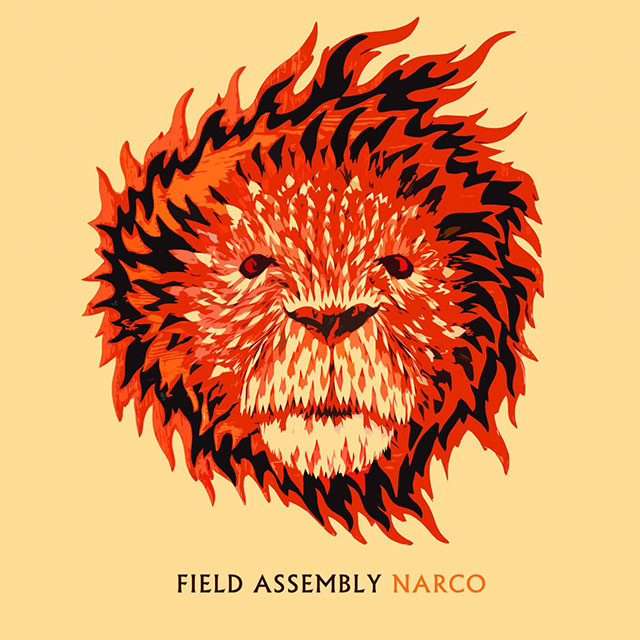It’s a simple yet sublime pleasure, and just thinking about it can make you feel a little calmer, a little more content. Imagine: You bring out one of the good rocks glasses (or your favorite mug or a special occasion tea cup) and pour a couple fingers of amber liquid (or something dark and strong or just some whole milk). You drop the needle on the jazz platter (or pull up a blues album on your mp3 player or dig out that mixtape from college). Ensconcing yourself in the coziest seat in the house, you crack the spine on a classic (or find your place in that sci-fi paperback or pull up a biography on your e-book reader). And then, you go away for a while. Ah, bliss.
In this series, some of NTSIB’s friends share beloved albums, books and drinks to recommend or inspire.
The Big Nowhere is Simon Sinclair and Billy Crowe, and they are from Glasgow, Scotland.
One time I was casting around for a way to describe them and I landed on “the house band at Callahan’s Crosstime Saloon.” I realize some of don’t know what that means, but what I am trying to say is they have great stories. Sad stories, weird stories, disquieting stories, happy stories, stories that could both inspire a two-stepping dance party and end in everyone throwing their shot glasses into the fireplace.
On The Waterfront, their second release this year, is a collection of out-takes and leftover songs from the sessions for The Big Nowhere’s second album Don’t Burn The Fortune, which was released in April. It is currently available for pay-what-you-can-if-you-can on bandcamp.
Now It’s Time To Let Her Go is my favorite:
And, as an additional treat, Simon Sinclair is joining us today to share his favorite book, record, and drink. Take it away, Mr. Sinclair:
My selections tie together – to me, they share a thread that may not be exactly visible, or even actually there. There’s something inexplicable about the three – there’s something intangibly… not exactly wrong, but definitely not right about them, and that’s what makes them, in my eyes at least, perfect.
Good Read: The Dark Stuff:Selected Writings on Rock Music 1972-1993 by Nick Kent
There have been countless collections of rock writing published, but none have served as much as a confessional than former NME hack Nick Kent’s collection of articles culled from various magazines first published in the 1970s, 80s and 90s. Like his American contemporary Lester Bangs, you can almost feel the anger, despair and crushing disappointment dripping from the ink on the page when the artists Kent idolizes fail to stay perched on the pedestal he has constructed for them. Likewise, you get caught up in the adrenaline rush of the fervor (and often panic) he experiences when someone actually lives up to the ideal he has in his head.
Whether it’s a sit-down with a confrontational Jerry Lee Lewis, or on-the-road fly-on-the-wall tour stories with the Sex Pistols, not everything here is complimentary – take the pieces on Phil Spector or Kurt Cobain for example. There’s no myth-making in his writing, except perhaps to the pieces in which he himself is injected (in more than one sense) into the proceedings –as an aside, the piece on Brian Wilson is admittedly by Kent almost a work of fiction on his part, but it’s fantastically realized nonetheless. There’s not really any middle ground here though.
Again, like Lester Bangs (who’s writings were a touchstone for Kent himself), he swings from cynicism to an almost child-like naivety – although at his cruelest, he never comes close to the externalised insight of say, Greil Marcus, and neither is he ever as lost and giddy as a Cameron Crowe. The stories contained within the book have been expanded, and sometimes re-written from the original magazine articles, which can offer a perspective tempered by later realizations or experiences. A good thing, I think.
I bought this book on it’s initial release in 1994, and have taken it around the world on my travels. The writing within it’s pages reveals as much about the writer himself as it does his subjects, even more than his own memoir, published in 2011. It’s a book I’ve read hundreds of times, and still often pick it up, look through the contents page and pick out an artist to try and put myself in that room at that time and imagine how it feel to be sat in the gaze of his Kohl-rimmed eyes, trying as hard as I can not to reveal anything, but telling everything.
Good Listen: Don’t Give Up On Me by Solomon Burke (2002)
In 2002, when this album was released, it was almost unthinkable that people still knew how to make records as joyful, as alive as this one: Don’t Give Up On Me by Solomon Burke.
To those of us who witnessed the decline of some of the greatest performers and songwriters into the mire of General MIDI set and vacuum-sealed assembly-line plastic production in the late 70s to the 90s (and it happened to everyone – from Dolly Parton to Aretha Franklin, from Willie Nelson to Ray Charles), the removal of the most important ingredient in any record – the soul, the feeling, whatever you want to call it – was like a knife to our hearts and polyfilla to our ears.
Then, in 1994, an album called ‘American Recordings’ by Johnny Cash did a little more than open some eyes. It had a spare, stripped back sound – recorded live in the studio – which let the songs, and the performance of Cash himself be allowed to breathe, to settle, it resigned to leave behind the showy studio shenanigans that had become commonplace.
A few other albums around the time had sought to communicate in such a direct way between the artist and listener – The Black Crowes’ ‘A Southern Harmony and Musical Companion’ – recorded live in the studio with all the feeling and grace that was missing from their multi-tracked debut. Bob Dylan’s ‘Time Out Of Mind’ in 1997 was seemingly the album that fans had been waiting for him to record for 30 years – it had a beautiful, warm sound uncommon in the already by-then quest for loudness that the record industry had seemingly decided on its own that the public wanted, and which was ruining the listening experience for those of us who clung desperately to our vinyl collections and turntables like frightened children.
Former Screaming Trees frontman Mark Lanegan took the idea of the laid-back, stripped back raw sound to heart for his collection of cover versions with 1999’s ‘I’ll Take Care Of You’ – a great record, and a great sounding record in its own right. You can hear every breath taken between words, every nail-scrape on brass guitar strings. The songs hit that little harder because you can imagine yourself being in the room. A performance is captured and every time you play it back you let a little of the ghosts that were in the room on that day out.
So, in 2002, it was the turn of the Fat Possum label to shine a little light on one of the gems of their collection – Solomon Burke: ‘The King of Rock ‘n’ Soul’ – the man who once told us ‘everybody needs somebody to love’ . Almost a forgotten figure to the mainstream music world, while undoubtedly deserving of the recognition of a James Brown, a Ray Charles or an Aretha Franklin, Burke’s stock seemed to be at an all-time low – not dissimilar to the position the pre-American Recordings Johnny Cash found himself in. Again similarly, it would be the man’s interpretation of others material (something he was known for in the first place) that would launch him back into the spotlight and give him a profile somewhere approaching his reputation.
Label president Andy Kaulkin approached the soul survivor after Burke’s induction on the Rock n Roll Hall of Fame in 2001, with a view to make a record featuring songs written by some of the true song writing greats. Not for nothing, but Burke was a little skeptical going into the project –
“I said, ‘How many of these stars do you know?’ And Andy said, ‘Well, none.’ I thought, ‘Oh, this is gonna be great.’ ” – Solomon Burke
With Fat Possum label-mate and producer Joe Henry at the helm, and veteran engineer/mixer S. Husky Huskolds taking charge of the overall sound of the project, Burke should have had no reason to worry. Huskolds had previously made records with artists such as Tom Waits and Sheryl Crowe, and was known for a particularly warm and honest sound. Without doubt, he was in good hands.
http://youtu.be/joXHmEOGy38
Artists and songwriters practically fell over themselves to contribute to the record. Van Morrison gave two songs he had been working on – ‘Fast Train’ and ‘Only A Dream’, both of which ended up on Morrison’s subsequent album upon hearing the treatments given here. Dan Penn, writer of such heartbreaking soul standards as ‘Dark End of The Street’ and ‘Do Right Woman’ contributed the song ‘Don’t Give Up On Me’, co-written with the late R&B legend Carson Whitsett. This song would ultimately provide the title of the album, itself almost a statement from Burke to the audience that had all but forgotten him. Tom Waits gave the song ‘Diamond In Your Mind’, an out-take from the sessions for his album ‘Blood Money’, originally written for avant-garde theatre director Robert Wilson’s production of ‘Woyzeck’. Waits would release his own version on the rarities collection ‘Orphans’ in 2006.
Elvis Costello, Nick Lowe, Bob Dylan, Brian Wilson and Tin Pan Alley veterans Barry Mann & Cynthia Weil also contributed songs to the project. Costello’s providing one of the album’s highlights in the sweeping, dramatic ‘The Judgement’, co-written with wife Cait O’Riordan.
“It’s like an opera. It takes you back to that time, it takes you back to Europe” said Burke.
[Much has been made of the similarity with Isaac Hayes’ ‘I Stand Accused’, which Costello had covered years before. I see it, but I don’t see it.]
There’s really not much to say about the Dylan and Brian Wilson songs except that it’s a little disappointing that even such a legendary interpreter of other people’s material can’t do anything with these two songs to make them sound any less like cast-offs or even ‘written-in-the-style-of’ knock-offs. That Burke and the band manage to make them not only entertaining, but even endearing (in the case of ‘Soul Searchin’’, Wilson’s song) is a testament to the talented individuals making the record. For shame, Bob and Brian, FOR SHAME.
Producer Joe Henry’s ‘Flesh and Blood’ is another of the album’s stand-out tracks, (and, cheekily, maybe a way for Henry to present his material to a wider audience – hell, he deserves it.). A heartbreaker for sure, a song of temptation and disgust and not a little regret. Everything’s going to hell. ‘How many ways can I fuck up?’, the song seems to be saying. All muted sax, swirling gospel organ and wrath-of-God-is-upon-us bass mixed up with Jay Bellerose and his collection of battered and broken drums like a death rattle coming through your cellar door. One cellar door you do not want to open.
The last track on the album has something of a mysterious history. ‘Sit This One Out’ is a good-whiskey-and-honey-sitting-on-the-porch-at magic-hour-looking-out-over-the-fields reminiscence. It’s sitting at a rain-streaked window in a city anywhere in the world, loved one by your side, head against the glass, content. It’s having lived a life, and being okay with it. It’s sweet without being saccharine – it’s The Straight Story. It’s the kind of song that can stop an argument inside of eight bars.
The song is credited to one Pick Purnell – a shadowy figure no doubt. According to Solomon Burke himself, the songwriter walked in, sat at the piano, played the song, got up and left. Hmm..
[as an aside, I have heard various claims ranging from Pick Purnell actually being jazz pianist Nick Purnell to being a pseudonym for Epitaph/Fat Possum head honcho Andy Kaulkin (is he the same Andy Kaulkin that released the album ‘Six Foot Seven and Rising’ in the late 90s? Can’t find any info either way, but it’s …interesting…]
This is a record that lives, breathes, procreates. I love that I can hear every breath between the words, every squeaky shoe, every foot slipping off a pedal, pocket change jingling. It’s a bunch of people, in a room making music. It’s a record made by a man in his 60s who has fathered twenty-one children and is a licensed mortician. It’s a record filled with joy, hurt, anger, disappointment, regret, spirituality, faith (and the loss of faith), but most of all love. In all honesty, Solomon Burke’s legendary pipes have never sounded better than here – the king come back to reclaim his throne. And that he did.
Good Drink: Fuzzy Tickle Button – invented by Simon Sinclair & Jennifer Snodgrass
Ingredients:
• 3/4 of a half-pint glass Alcoholic Cider (as cheap as you can find)
• 1/4 of a half-pint glass Energy Drink (again, as cheap as you can find – Emerge, Best-In, Mixxed Up)
• 1 shot Peach Schnapps (use a particularly peachy one, like Iceland’s [ed note: grocery store, not country!] own brand Peach Schnapps – very, very cheap)
Instructions:
Make sure the cider and energy drink are suitably chilled. Pour the cider into the glass first, letting the bubbles settle. Pour in the energy drink. Take a gulp, then add the shot of Peach Schnapps. Add ice until the liquid is back to the top of the glass.
The cheaper the ingredients the better, as once the drink is mixed, it will not make the slightest bit of difference if you use more expensive cider or energy drink, it tastes exactly the same. Cheap, really peachy-tasting Peach Schapps (the one from Iceland is perfect for this and is about £4 a bottle). Crisp, sweet, fruity and refreshing.






